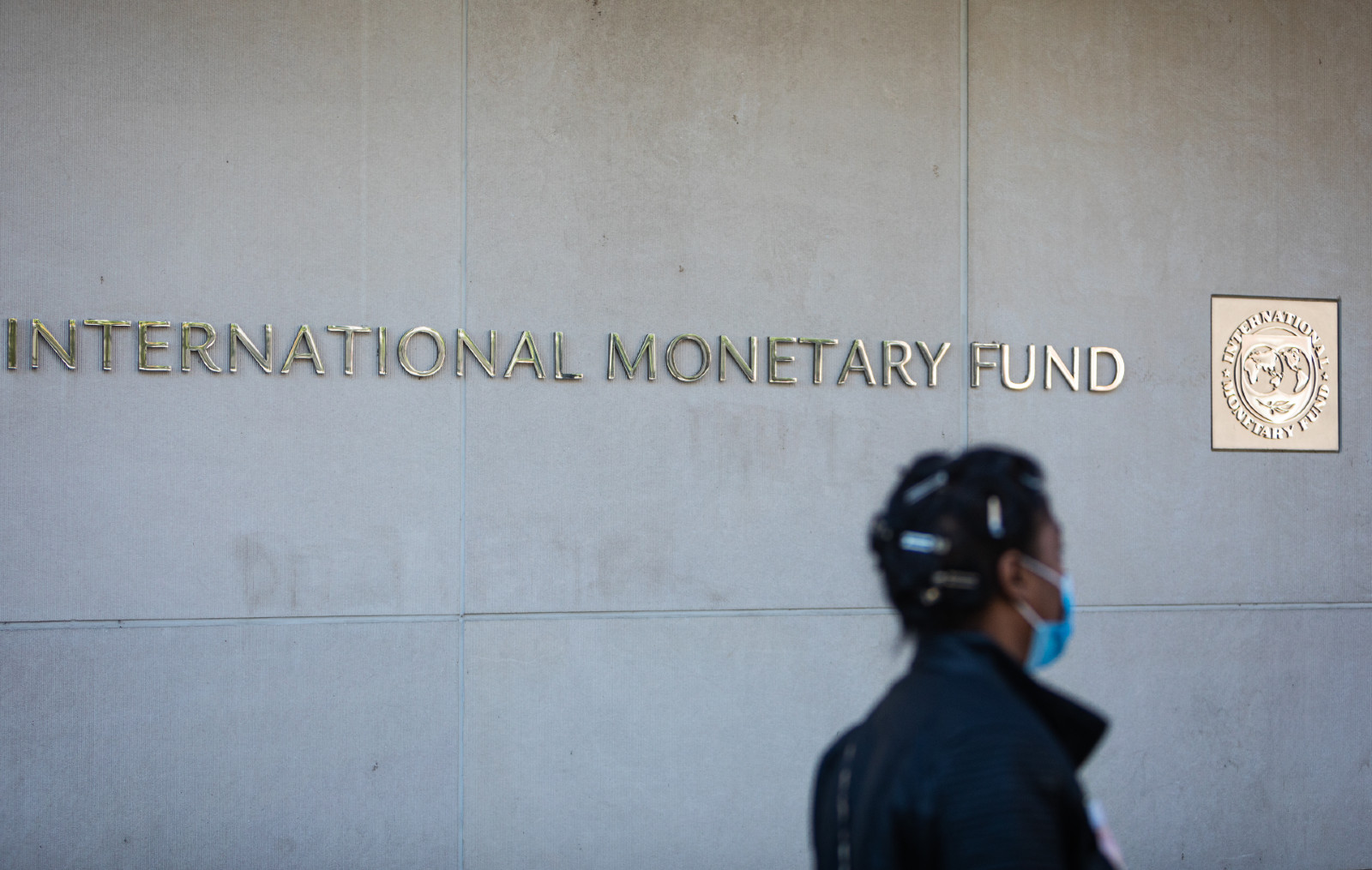Egypt negotiating “limited” IMF loan -Amer

Amer dials back expectations for large IMF package: Negotiations between Egypt and the IMF for a fresh assistance program are focusing on a “limited” amount of funding, Central Bank of Egypt Governor Tarek Amer told Bloomberg Asharq on the sidelines of a meeting of the Union of Arab Banks yesterday (watch, runtime: 0:20).
REFRESHER- The government has been in talks with the IMF since March for a new assistance program to help it mitigate the impact on our economy of Russia’s war in Ukraine and rising interest rates around the world. The talks were said to be in the technical phase in April, though Prime Minister Moustafa Madbouly said earlier this week that it could still take months before an agreement is reached.
We could be looking at USD 3-4 bn: Fakhry El Fiky, head of the House Planning Committee, said last month that Egypt could be in line for a precautionary and liquidity line worth around USD 3.5 bn.
Why a small program? Egypt has exhausted its quota. Egypt has borrowed USD 20 bn from the IMF since 2016, and though it started to pay back the first USD 12 bn facility last year, it remains far beyond its quota. This means that further borrowing will be under exceptional access criteria, requiring us to comply with more stringent conditions. “Egypt has taken a big allocation so [the loan] will not be big,” Amer said at the Union of Arab Banks meeting yesterday. “We’re going to the IMF to benefit from structural reforms.”
Here’s what could be on the table: “A commitment to continued exchange rate flexibility will likely be a key pillar of any programme, alongside primary balance targets that set debt on a sustainable downward path, and a greater commitment to longer-term structural reforms that have so far gained little traction,” Patrick Curran, senior economist at Tellimer Research, wrote in a note earlier this month.
Precursors to financing? The CBE in March allowed the EGP to slide roughly 18% against the USD. The negotiations have also coincided with the government announcing new pledges to privatize a swathe of industries, doubling the private sector’s share of the economy over the next three years.
What happens next depends on how the IMF assesses the sustainability of our debt position: Comments made recently by IMF head Kristalina Georgieva raised the possibility that the IMF could declare Egypt’s debt as unsustainable. “We have to press for debt restructuring … we will sit with Sri Lanka, we will sit with Egypt, we will sit with Tunisia, and we will discuss what realistically needs to be done," she said in an interview prior to last month’s Spring Meetings. “This raises the risk that the IMF may classify Egypt’s debt as unsustainable and require a restructuring to unlock Fund support,” Curran wrote. The government expects debt payments to eat almost half its revenues in the coming fiscal year.
Amer defends CBE record: Speaking to a room of bankers and monetary policymakers at the UAB meeting, Amer used the occasion to outline how he sees the CBE’s record responding to a succession of domestic and global economic crises. “Egypt was subject to a large exodus of international investors and pressure caused by inflation, prompting the CBE to take a set of measures such as using part of the cash reserves to support the markets and issuing certificates with an 18% interest rate,” he said during his address (pdf).
From the speech:
- He defended the devaluation of the EGP in March, saying that it resulted in a 30% increase in foreign exchange revenues, though it wasn’t immediately clear what he was referring to. The decision to maintain exchange-rate stability through much of the past year had protected household, corporate and government finances from a potential currency shock, he said, voicing optimism that the EGP will become more attractive than other currencies over the medium term;
- Amer went to considerable lengths to say that despite “imported inflation,” Egyptian manufacturers are in an enviable position, with access to capital and affordable energy that makes them the envy of many of their global peers. It is up to the business community to “take advantage of Egypt’s encouraging investment climate and the facilities provided by the state to productive industry.”
- Amer denied there is a liquidity crisis in the banking system, saying FX liquidity has risen by 68%.
Cabinet and Ittihadiya have recently met with Amer and senior officials at the central bank to discuss manufacturer’s problems managing inflows of production inputs and raw materials since the central bank switched from documentary collection to letters of credit to cover imports.